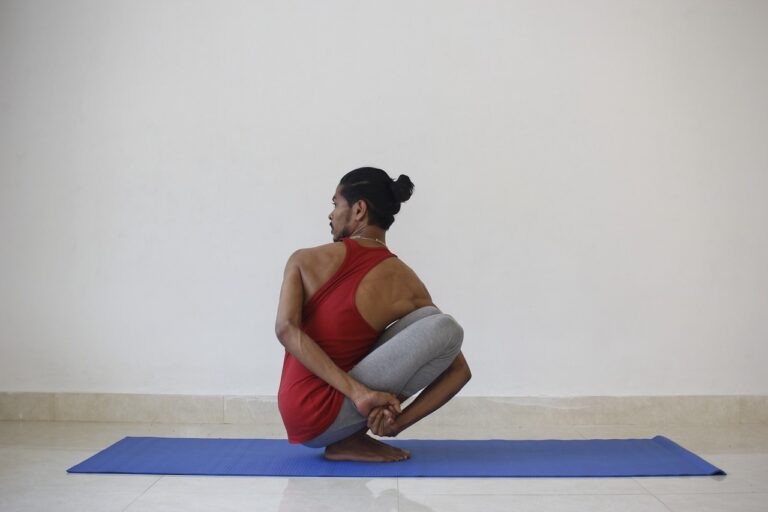Sustainable Fashion Rental Services: Reducing Waste through Clothing Sharing
When considering clothing rental services, one must acknowledge the practicality and convenience it offers. Renting clothes provides a cost-effective way to access a wide variety of designer and high-quality garments without the commitment of purchasing them. This is particularly beneficial for special occasions or events where wearing an outfit once or twice is more suitable than owning it.
Furthermore, clothing rental services align with the growing trend of sustainable and ethical fashion practices. By opting to rent clothing instead of buying new pieces frequently, individuals can reduce their contribution to the fashion industry’s negative environmental impact. Renting clothes promotes circular fashion by extending the lifespan of garments and reducing waste in landfills.
The Environmental Impact of Fast Fashion
Fast fashion has undeniably contributed to significant environmental degradation, stemming from its production processes that prioritize speed and low-cost production. The relentless demand for new clothing items has led to massive amounts of resources being consumed, from water and energy to chemical usage, resulting in pollution of air, water, and soil.
Moreover, the disposal of fast fashion garments adds to the environmental burden. With the prevalence of low-quality clothing items that wear out quickly, landfills are overflowing with textiles that do not biodegrade easily. The cycle of constant production and discarding perpetuated by fast fashion has created a linear economy where resources are extracted, utilized briefly, and then discarded, exacerbating the environmental impact of the fashion industry.
Benefits of Clothing Sharing
Clothing sharing offers a range of advantages, making it an appealing option for those looking to refresh their wardrobes sustainably. One significant benefit is the opportunity to access a diverse selection of high-quality clothing without the need for significant financial investment. By participating in clothing sharing, individuals can enjoy wearing designer pieces or trendy outfits for special occasions without the hefty price tag associated with purchasing them outright. This not only helps to reduce personal expenses but also promotes a more conscious approach to consumerism by encouraging the reuse of clothing items.
Additionally, clothing sharing facilitates a sense of community and connection among participants. Through sharing clothes with friends, family, or even strangers, individuals can bond over their love for fashion, exchange style tips, and foster a collaborative ethos centered around sustainability. This sharing economy model not only promotes social interactions but also promotes a culture of generosity and reciprocity, where individuals can contribute to reducing waste and minimizing the environmental impact of the fashion industry through collective action.
How Does Clothing Rental Work?
When utilizing clothing rental services, the process typically involves selecting items from an online platform or physical store, choosing the desired rental period, and providing payment information. After selecting the garments, they are usually delivered to your doorstep or picked up in-store.
During the rental period, you can wear the clothing as you would if it were your own. It is imperative to adhere to the care instructions provided to ensure the garments are maintained in good condition. Once the rental period expires, the items are then returned to the rental service either by dropping them off or scheduling a pick-up.
Popular Sustainable Fashion Rental Platforms
Some of the popular sustainable fashion rental platforms that have gained traction in recent years include Rent the Runway, Le Tote, and Girl Meets Dress. These platforms offer a wide range of designer clothing and accessories for customers to rent on a temporary basis, allowing them to enjoy the latest trends without the commitment of a full purchase.
With a focus on reducing waste and promoting a circular economy, these rental platforms have become go-to options for those looking to style themselves sustainably. By providing access to high-quality clothing that may have otherwise gone unused, these platforms are paving the way for a more environmentally friendly approach to fashion consumption.
Tips for Renting Clothing Sustainably
When renting clothing sustainably, it’s important to look for pieces that are timeless and versatile. Opt for high-quality items that can be styled in different ways for various occasions. By choosing classic pieces, you can maximize the wear of each garment and reduce the need for frequent rentals.
Additionally, always ensure to read and adhere to the care instructions provided by the rental service to maintain the quality of the clothing. Proper care will not only extend the lifespan of the garments but also contribute to reducing the environmental impact of the fashion industry. By treating rented clothes with care, you can help promote a more sustainable approach to fashion consumption.
Challenges of Clothing Rental Services
One significant challenge facing clothing rental services is the issue of garment wear-and-tear. Since rental items are frequently used by multiple customers, they are prone to experiencing more wear and tear compared to personally owned clothing. This can lead to a shorter lifespan for the rented garments, resulting in increased frequency of replacements and higher costs for the rental service providers.
Another challenge lies in the logistics of managing inventory and ensuring a continuous supply of trendy and desirable clothing options for customers. Sourcing, cleaning, and storing a diverse range of garments in various sizes and styles can be a complex and time-consuming process. Additionally, predicting and meeting the demand for specific items can be tricky, as fashion trends are constantly evolving, and customer preferences can vary widely.
The Future of Sustainable Fashion Rental
The future of sustainable fashion rental is promising, as more consumers are becoming aware of the environmental impact of fast fashion. This increased awareness is driving the demand for more eco-friendly and ethical options in the fashion industry. As a result, clothing rental services are expected to continue to grow and innovate to meet the evolving needs of conscious consumers.
With advancements in technology and a shift towards a more circular economy, sustainable fashion rental platforms are likely to become more efficient and accessible. This could include incorporating virtual try-on features, expanding size inclusivity, and streamlining the rental process for a seamless and convenient experience. By embracing these changes, the future of sustainable fashion rental holds great potential in promoting a more sustainable and ethical approach to fashion consumption.
Supporting Local Economies through Clothing Sharing
Clothing sharing not only benefits individuals but can also have a positive impact on local economies. By participating in clothing sharing programs within their community, individuals can support local businesses and entrepreneurs. This practice fosters a sense of togetherness and promotes the growth of small-scale fashion enterprises that focus on sustainable and ethical practices.
Moreover, clothing sharing helps in reducing the demand for mass-produced fast fashion items, which are often produced overseas under questionable labor conditions. By choosing to share and exchange clothing locally, individuals contribute to the revitalization of their community’s economy and promote a more sustainable and socially responsible approach to fashion consumption.
Empowering Sustainable Fashion Designers
As the fashion industry continues to embrace sustainability, designers committed to eco-friendly practices are gaining more recognition and support. These sustainable fashion designers play a crucial role in driving positive change within the industry by creating innovative designs that prioritize environmental and social responsibility. By empowering these designers, we are not only promoting conscious consumerism but also encouraging a shift towards more ethical and sustainable fashion practices.
Supporting sustainable fashion designers can help challenge the traditional norms of the industry and inspire other fashion professionals to adopt more eco-conscious approaches. By providing these designers with opportunities to showcase their work and collaborate with like-minded individuals and organizations, we contribute to building a more inclusive and sustainable fashion ecosystem. Ultimately, empowering sustainable fashion designers is essential for promoting a more ethical and environmentally friendly fashion industry for the future.
How can clothing rental services empower sustainable fashion designers?
Clothing rental services provide sustainable fashion designers with a platform to showcase their designs to a wider audience, leading to increased brand visibility and potential sales.
What are some challenges faced by sustainable fashion designers in the industry?
Sustainable fashion designers often struggle with limited resources, lack of market exposure, and competition from fast fashion brands. Clothing rental services can help address these challenges.
How does clothing rental contribute to reducing the environmental impact of fashion?
By promoting the sharing and reuse of clothing, rental services help extend the lifespan of garments, reducing the need for new production and ultimately decreasing the amount of clothing waste sent to landfills.
Are there any benefits for consumers when using clothing rental services?
Yes, clothing rental services offer consumers access to a variety of high-quality, sustainably-made garments at a fraction of the cost of purchasing them outright. It also allows for more experimentation with different styles without the commitment of ownership.
How can individuals support sustainable fashion designers and the clothing sharing economy?
Individuals can support sustainable fashion designers by choosing to rent clothing from their collections, promoting their work on social media, and advocating for more sustainable practices within the fashion industry.







